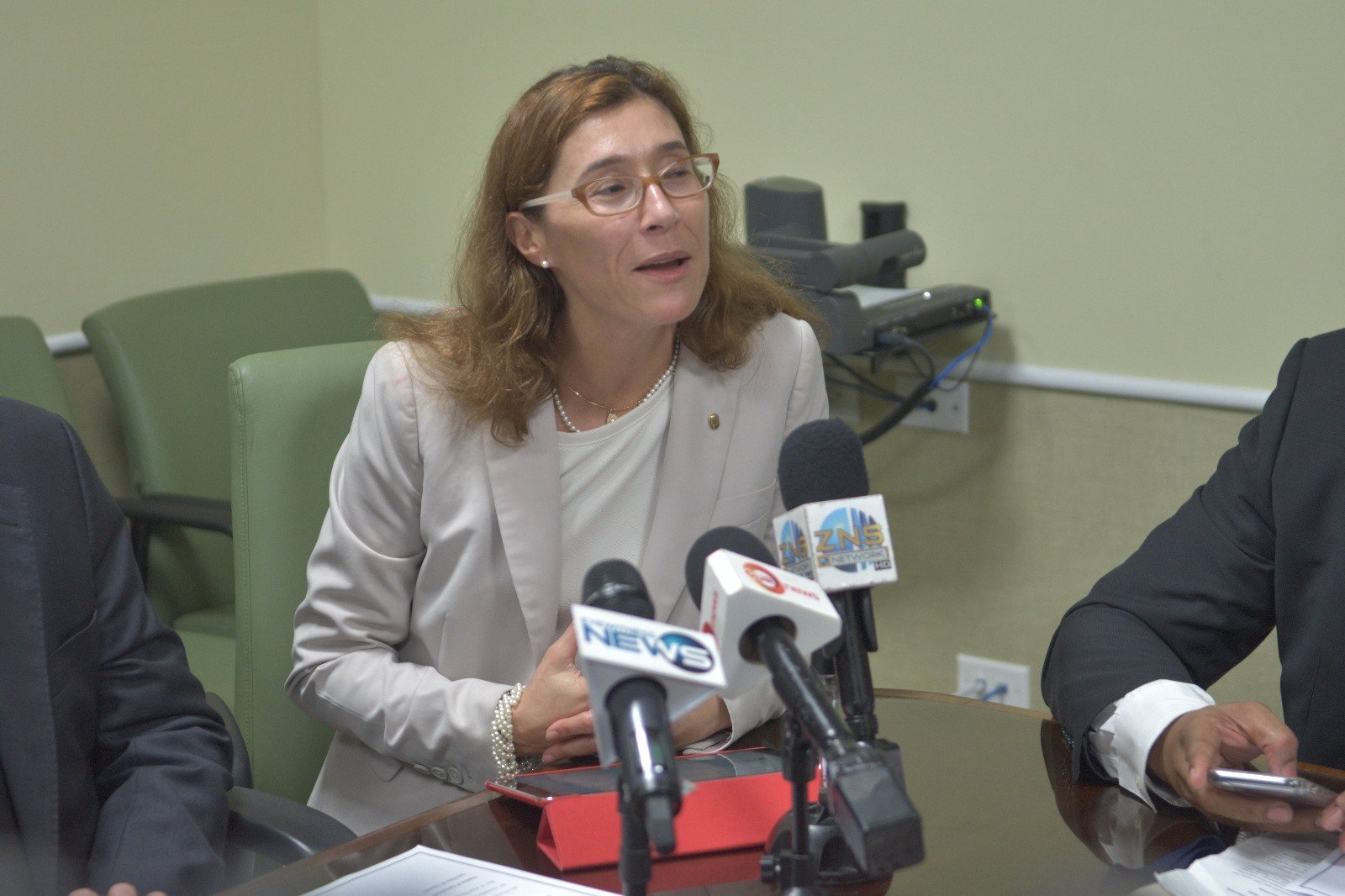A senior Inter-American Development Bank (IDB) representative weighed in recently on the controversial hike of value-added tax by the government in its upcoming fiscal budget, pointing out that on a comparative basis, the tax as well as other consumption taxes in other jurisdictions, are typically higher than the current 7.5 per cent peg in this jurisdiction.
Asked her assessment of the government’s proposed increase to 12 per cent, IDB Country Representative for The Bahamas Florencia Attademo-Hirt reasoned, that in order to determine the true impact of tax on any jurisdiction, one must take a more holistic look at any government’s austerity measures.
“Each country makes its own policy decision,” Attademo-Hirt said, “based on the needs of the country from an expenditure point of view and from a revenue point of view.”
“The decision of increasing the rate is a decision by the government. That is why it’s being discussed by your representatives in Parliament but, from a technical point of view, we have seen higher rates in other jurisdictions,” she said.
“Now, the other thing I would mention is, it is not a complete analysis to just look at one type of tax.
“If you really are serious about analyzing the affects of any tax measure, be it on increasing a rate or on deficiency of collection, or on deficiency of expenditure.
“If you are serious about analyzing that as a professional, you should look at the whole package of measures and understand how that works for your country.”
During the recent signing of a $70 million loan between government and the IDB, the senior executive said those facts must be considered in truly understanding the country’s current fiscal position, particularly due to the country’s legacy taxation policies.
“In your gorgeous archipelago, for many decades,” she said, “you have been relying heavily on import duties. And many of those import duties also increase the cost of living for all Bahamians. I would say for all of us who live in this beautiful country.”
“So you have to perhaps pause and reflect upon the impact of one measure versus the other [and], the impact that an exemption on import duties or lower import duty has on the life of everyday Bahamians.”
Budget: Best deficit reduction plan
Deputy Prime Minister and Minister of Finance Peter Turnquest who continued defending governments budget last week said, it is the only way government will be able to get this jurisdiction out of legacy debt.
Turnquest maintained last week that the proposed budget is part of a three year, multi-pronged approach to getting the current deficit under control.
That said, many taxpayers have in the past few weeks, voiced their opposition to the hike, as well as some members of parliament, including on the government’s side.
Some parliamentarians have argued that the timing of the increase is simply “off”.
Asked by Eyewitness News outside Cabinet last week, whether the government would consider a decrease in the percentage if it’s three-year plan is successful in reducing the deficit, the deputy prime minister said, he could not make any promises.
Instead, he said, the government will perhaps look at reducing customs duties among others.
“One of the things you would know about me is I try to tell the truth, regardless of whether that is favorable to me or not. And I’m not going to propose to the Bahamian people that the value-added tax rate is going to come down,” Turnquest said.
“But what I will say is, that when we get our house in order, which this 12 per cent will allow us to do, then we have have the ability to start looking at things like customs duties and other taxes, to see if we can bring them further down, and help the Bahamian people on the front end by lowering the overall cost of goods and services in the country.
“So, we are committed to balancing this budget, as quickly as we can, so that we can start to be more progressive in how we look at the way that government gets its revenue, and trying to lower the cost on the Bahamian people for the long term.”
There had also been talk of a tax-free day some time ago. And while he could not make a commitment, the deputy prime minister said, the idea is still under consideration.
“We are thinking about that,” Turnquest said.
“I would probably say that this year it is unlikely but, we haven’t come to any conclusion on that. But that is something that we would like to offer because, again, we know that getting back to school is expensive and so we would like to be able to do something like that.
“And that’s the kind of thing we can consider next year because, once you pay this large charge of past bills this year – $172 million, next year, we have a bit of room that we can look at things like a VAT-free weekend.
“And we would like to do that for the Bahamian people because, again, we recognize that what we are asking is a sacrifice. It is a significant expenditure or additional cost for the average family.”
Attorney General Carl Bethel also defended the government’s position last week, insisting the country cannot continue the ways of past government’s.
“We have to do what is right to restore financial balance and sanity in budgeting in this country,” Bethel said.
“We cannot continue to borrow our way out of debt. It is impossible to borrow you’re way out of debt. And if you cannot borrow your way any further in order to get out of debt because everytime you borrow, you increase your debt. Then you have to find some other way to rebalance your expenditure.
“We think we’ve found the most painless way, even though it is painful.”






